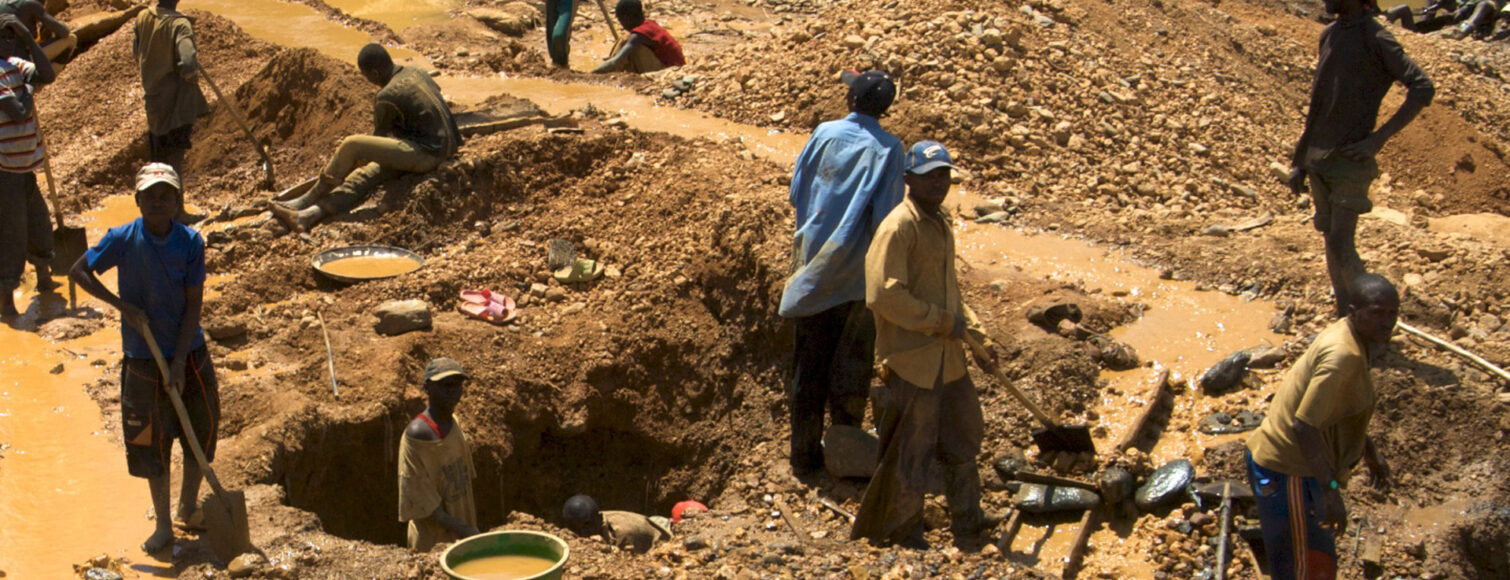Recording: Critical Raw Materials and Their Impacts: Approaches for a Better Future
🌍 Save the Date! 🗓️
What is the impact that our increasing need for Critical Raw Materials makes on our world? Can we ethically and equitably mine everything we need to support our lifestyles and the energy transition or not?
The Why:
Critical raw materials – their uses, mining, distribution, and disposal – are impacting our world and society in numerous ways. They shape our green energy transition, make our smart phones work, but they are also at the root of conflicts, environmental destruction, and human rights abuses all over the world.
The What:
At a university heavily invested in the energy transition, technological innovation, and climate mitigation, a broad analysis of these impacts is crucial. Over the past year, the TUD working group for Decolonizing Critical Raw Materials has addressed these impacts and today will present their data for an open discussion.
Call to action:
Join us for this afternoon session, where we will hear responses from a diverse panel and from you, the audience, to find a way forward together. Don’t miss this opportunity to shape a more resilient and responsible future!
📅 Date: April 23th
🕑 Time: Walk in 13:30, Event 14:00-17:00, Drinks afterwards
📍 Location: TU Delft Library, Main Hall
Dance performance by: MABIKAs Cultural Performing Group
Our panelists today:
Dr. Shivant Jhagroe
Dr. Shivant Jhagroe is a writer, researcher and artist. He works as an assistant professor at the Institute of Public Administration at Leiden University. In his new book ‘Beyond Sustainability’ (in Dutch, ‘Voorbij Duurzaamheid’), Shivant argues that thinking and acting from the perspective of sustainability often functions as a ‘green pacifier’ that prevents radical and just system change. The moral fixation on sustainability narratives (e.g. electric cars, eco-tourism) makes us forget how deeply sustainability is intertwined with colonialism, capitalism and social exclusion. He therefore advocates for a different political imagination, towards an ‘eco-just society’, in which loving and caring relations with Earth and each other are centered.
Myra Colis
Myra Colis is an Indigenous Igorot from the Global South with expertise in Artificial Intelligence (AI) and a Master’s in International Technology Law acquired in the Global North. As an advocate for AI ethics and governance, community leader, and founding chairperson of MABIKAs Foundation-The Netherlands, she is dedicated to integrating Indigenous perspectives into movements for decolonization, regeneration, sustainability, and social impact. Through partnerships, collaborative research, and speaking engagements, she aims to bridge the gap between traditional knowledge and modern innovations by working with diverse stakeholders, including youth, educational institutions, businesses, policy-makers, and communities. Most recently, she introduced INAIYAN, a pioneering initiative integrating Indigenous perspectives into AI development and governance.
Dr. Mike Buxton
Dr. Mike Buxton has worked for 16 years in the South African mining industry as an exploration geologist, mine geologist, technical due diligence and business improvement. He has extensive experience in applied research and project management and is currently Section Head for Resource Engineering at TUD.
Alphonse Muambi
Alphonse Muambi is an author, critical opinion leader and lobbyist from DR Congo who currently lives in The Netherlands. In 2006 and November 2011, he acted as an international election observer in Congo on behalf of the Netherlands. Muambi is also a speaker and participates in (inter)national forums on Africa, globalisation issues, strategic raw materials and development cooperation. Muambi acts as a consultant in these fields relating to Congo. He remains closely involved in political developments in DR Congo.
Drs. Anna Melnyk
Anna Melnyk is a Lecturer and Postdoctoral Researcher in the Ethics & Philosophy of Technology section and the TPM Energy Transition Lab at TU Delft. Her research explores the intersection of ethics and philosophy of technology, climate ethics, agent-based modeling, and energy studies, focusing on the role of values, their complexity, and dynamic nature. In several projects, Anna collaborates with researchers, activists, and practitioners to explore non-Western, non-anthropocentric, and decolonial ideas and visions of energy and climate transitions. She is also a member of the Delft Design for Values Institute.
Presentation:
Data results will be presented by Dr. Andrea Gammon. Andrea is an education-focused Assistant Professor of Ethics and Philosophy of Technology TU Delft. She researches environmental philosophy and ethics education for engineering students and coordinates ethics teaching throughout TU Delft.
And our host today is Tadé Whenu. Tadé is a Master Student at TU Delft and Leiden University, interested in learning and experiencing the ethical and philosophical boundaries of technologies and society worldwide. During 2022 and 2023 he was the chair of Students4Sustainability (Delft) and is currently following the joint degree MSc Industrial Ecology. Throughout his studies he has been working on several planetary crises and their intersectionality, socio-economic transitions and scrutinising the role of technology through critical thinking and ethical debates. He has worked as a student assistant at the decolonial working group and in several courses related to regeneration and small-scale action entrepreneurship. Currently he is working on a research project exploring the intersections of Climate Justice and Industrial Ecology, whilst also writing his thesis on the role of citizen initiatives in governing systemic transitions.
(Image courtesy of Enough Project | Flickr)


